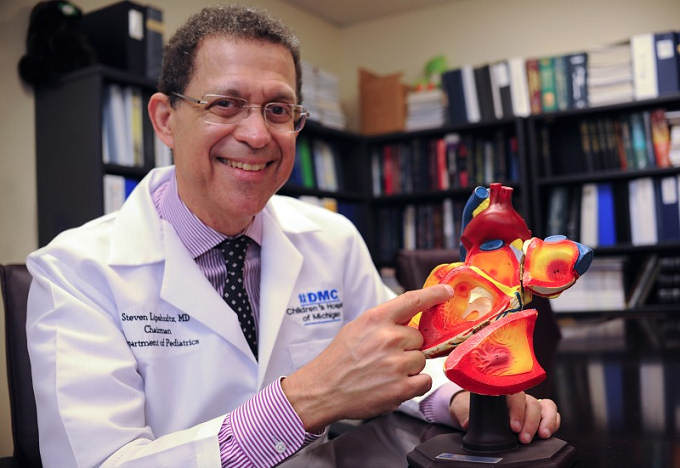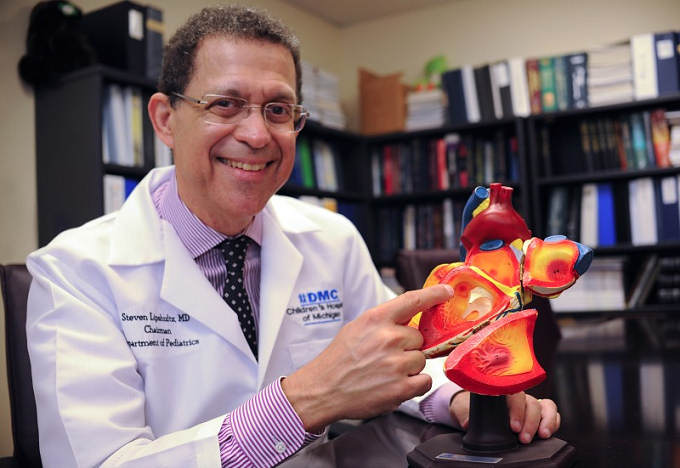
A potent chemotherapy drug can be life saving for children with cancer, but a new review highlights how it can have long-lasting negative effects on the heart. The review, which is published in the British Journal of Clinical Pharmacology, also indicates that this chemotherapy-related heart damage may be prevented by a cardioprotective drug.
Advances in cancer therapy have significantly increased survival rates in children with cancer, but these survivors face increased long-term risks of experiencing side effects related to their treatment. For example, anthracyclines, which are among the most commonly used chemotherapeutic agents for treating children with cancer, are extremely effective, but they are also increase the risk of damage o the heart.
When Steven Lipshultz, MD, of Wayne State University School of Medicine and the Children’s Hospital of Michigan, in Detroit, and his colleagues reviewed the medical literature, they found that anthracyclines can increase patients’ risks of developing cardiomyopathy, heart failure, heart attacks, valve disease, pericardial disease, hypertension, and other cardiovascular-related conditions. The team also found that dexrazoxane has proven helpful in preventing many of the cardiotoxic effects of anthracycline treatment, without reducing its anticancer effects.
“Our review defines that the price of treatment for childhood cancer for many survivors is persistent, often progressive, and pervasive cardiotoxicity for those treated with anthracycline chemotherapy,” said Dr. Lipshultz. “We then show that the accumulated data indicate that this chemotherapy-related heart damage can be ameliorated or prevented by the drug dexrazoxane when given immediately before each anthracycline dose.” The findings indicate that the use of dexrazoxane can allow anthracyclines to be given more safely and at higher doses without risking damage to the heart.
The authors stressed that dexrazoxane should be considered as a part of therapy for young patients treated with anthracyclines. “If implemented, more children with cancer who are treated with anthracyclines may be cured of their malignancy and with less chemotherapy-associated toxicity and late effects,” said Dr. Lipshultz.
###
September is Childhood Cancer Awareness month.
For more information or to obtain a PDF of any study, please contact [email protected].
Full citation:”Prevention of Cardiotoxicity among Survivors of Childhood Cancer.” Kelley Hutchins, Hani Siddeek, Vivian Franco, and Steven Lipshultz. British Journal of Clinical Pharmacology. Published Online: September 5, 2016 2016, DOI: 10.1111/bcp.13120.
URL Upon Publication: http://doi.wiley.com/10.1111/bcp.13120
Author Contact: To arrange an interview with the author, please contact Elise Bennett, Director of Marketing and Public Relations at the Children’s Hospital of Michigan – Detroit Medical Center, at [email protected] or +1 (313) 966-5288.
About the Children’s Hospital of Michigan: For nearly 130 years, the Children’s Hospital of Michigan has been dedicated to providing high quality care to children and adolescents in a caring, efficient and family-centered environment. With more than 40 pediatric medical and surgical specialty services, the hospital draws patients from nearly every Michigan County, 39 additional states, and 22 countries, annually and provides the highest level of pediatric specialty care available for children. The hospital is a national leader in cardiology and heart surgery, neurology and neurosurgery, nephrology, and orthopedics. It is ranked as one of America’s best hospitals for children and sees more children than any hospital in the state. Children’s Hospital of Michigan is one of eight hospitals operated by the Detroit Medical Center (DMC).
About the Journal: The British Journal of Clinical Pharmacology has the primary goal of publishing high quality research papers on all aspects of drug action in humans. The journal has a wide readership, bridging the medical profession, clinical research and the pharmaceutical industry, and is published monthly. It is owned by the British Pharmacological Society and published by Wiley. The journal’s current Impact Factor is 3.83 (Thomson Reuters Science Citation Index).
About The British Pharmacological Society: The British Pharmacological Society is a charity with a mission to promote and advance the whole spectrum of pharmacology. Founded in 1931, it is now a global community at the heart of pharmacology, with over 3,500 members from more than 60 countries worldwide. The Society leads the way in the research and application of pharmacology around the world through its scientific meetings, educational resources and peer-reviewed journals: the British Journal of Clinical Pharmacology, Pharmacology Research & Perspectives and the British Journal of Pharmacology, which includes the Concise Guide to PHARMACOLOGY, featuring open access overviews of the key properties of over 1,700 human therapeutic targets and their drugs, and links to http://www.guidetopharmacology.org.
Press Office: +44 20 7239 0180 | M. +44 7786 552498 | E. [email protected].
About Wiley: Wiley is a global provider of knowledge and knowledge-enabled services that improve outcomes in areas of research, professional practice and education. Through the Researchsegment, the Company provides digital and print scientific, technical, medical, and scholarly journals, reference works, books, database services, and advertising. The Professional Developmentsegment provides digital and print books, online assessment and training services, and test prep and certification. In Education, Wiley provides education solutions including online program management services for higher education institutions and course management tools for instructors and students, as well as print and digital content. The Company’s website can be accessed at http://www.wiley.com.
Media Contact
Dawn Peters
[email protected]
781-388-8408
http://www.wiley.com/wiley-blackwell
The post Cardioprotective drug helps prevent long-term heart damage in children receiving chemotherapy appeared first on Scienmag.





